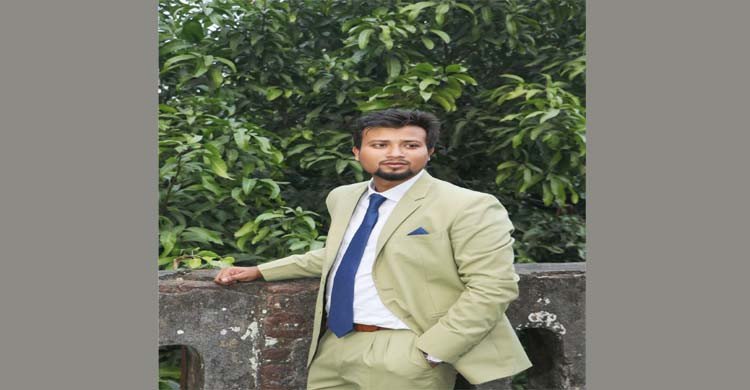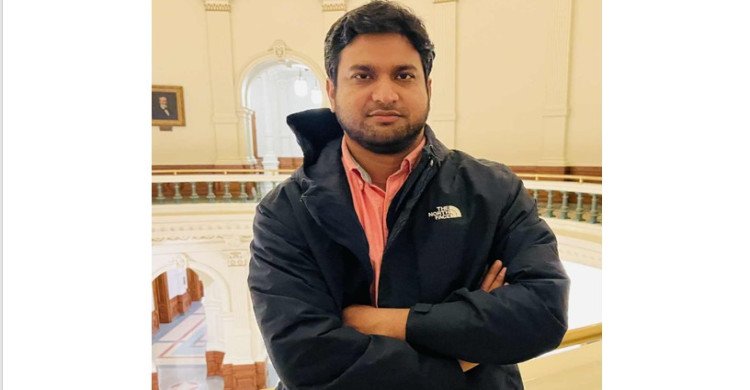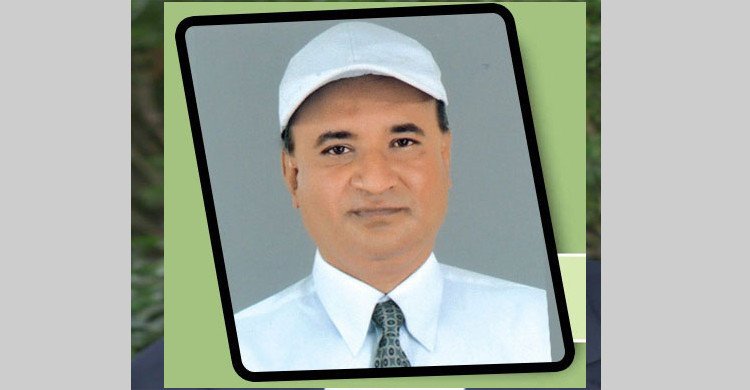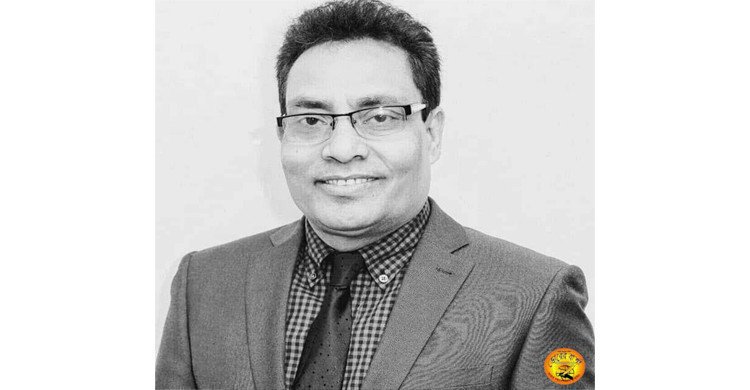A Visionary Researcher Bridging AI, Cybersecurity, and Digital Infrastructure for Global Impact

Ishtiaque Ahmed
১৮-৬-২০২৫ দুপুর ১:৩০

A Visionary Researcher Bridging AI, Cybersecurity, and Digital Infrastructure for Global Impact
In an era defined by data breaches, rapid digitalization, and the urgent need for secure, intelligent systems, Bangladeshi technologist and researcher Ishtiaque Ahmed is emerging as a pioneering figure. With a professional foundation in electrical and electronic engineering and an evolving research agenda rooted in cybersecurity, artificial intelligence (AI), and digital infrastructure, Ahmed is redefining how emerging technologies can be responsibly applied to address complex societal challenges.
Ahmed began his academic journey at American International University-Bangladesh (AIUB), where he earned his Bachelor of Science in Electrical and Electronic Engineering. Early in his career, he managed infrastructure-focused engineering projects in Bangladesh, focusing on site data analysis, system efficiency, and performance optimization. These hands-on experiences not only honed his technical abilities but also sparked his interest in data-driven decision-making and automation—interests that would later define his research trajectory.
Eager to deepen his expertise and expand his global impact, Ahmed pursued his Master of Science in Information Technology Management from Webster University in the United States. During this time, he began producing peer-reviewed studies addressing some of the most urgent technological issues of the digital age. His research encompasses SCADA system vulnerabilities, AI-driven predictive maintenance, ethical frameworks for intelligent systems, and digital resilience in critical infrastructure. His multidisciplinary approach integrates concepts from systems engineering, cybersecurity, artificial intelligence, and governance, making his work both academically robust and practically applicable.
What sets Ahmed apart is not only his command of technical knowledge but also his forward-looking research vision. In the coming years, he plans to deepen his work on developing AI-powered fraud detection systems, credit risk analytics for financial institutions, and cybersecurity models tailored for smart city infrastructure. He is particularly focused on designing scalable, explainable AI models that ensure transparency and trustworthiness—an area gaining urgency as digital systems become more autonomous and integrated into daily life.
Ahmed envisions future systems where predictive algorithms not only enhance efficiency but also uphold ethical standards and societal trust. He is committed to producing open-source tools, frameworks, and policy-relevant insights that can be adopted by public and private sectors globally. His work aims to create a ripple effect: improving industrial safety, protecting financial transactions, and fostering equitable access to secure digital services.
At the heart of Ahmed’s research philosophy is a commitment to public good. He believes that technological innovation should not only drive profit and performance but also promote transparency, inclusivity, and sustainability. Whether designing frameworks for AI ethics or building tools to detect cybersecurity threats, his work reflects a rare combination of technical depth and civic responsibility.
Ishtiaque Ahmed exemplifies a new generation of Bangladeshi scholars who are shaping the digital future—not just through theoretical advancements but through applied research that resonates with real-world priorities. As global challenges intensify and the demand for secure, intelligent systems grows, voices like Ahmed’s will play an increasingly vital role in ensuring technology is developed not only for advancement but for accountability.
Ishtiaque Ahmed
১৮-৬-২০২৫ দুপুর ১:৩০

In an era defined by data breaches, rapid digitalization, and the urgent need for secure, intelligent systems, Bangladeshi technologist and researcher Ishtiaque Ahmed is emerging as a pioneering figure. With a professional foundation in electrical and electronic engineering and an evolving research agenda rooted in cybersecurity, artificial intelligence (AI), and digital infrastructure, Ahmed is redefining how emerging technologies can be responsibly applied to address complex societal challenges.
Ahmed began his academic journey at American International University-Bangladesh (AIUB), where he earned his Bachelor of Science in Electrical and Electronic Engineering. Early in his career, he managed infrastructure-focused engineering projects in Bangladesh, focusing on site data analysis, system efficiency, and performance optimization. These hands-on experiences not only honed his technical abilities but also sparked his interest in data-driven decision-making and automation—interests that would later define his research trajectory.
Eager to deepen his expertise and expand his global impact, Ahmed pursued his Master of Science in Information Technology Management from Webster University in the United States. During this time, he began producing peer-reviewed studies addressing some of the most urgent technological issues of the digital age. His research encompasses SCADA system vulnerabilities, AI-driven predictive maintenance, ethical frameworks for intelligent systems, and digital resilience in critical infrastructure. His multidisciplinary approach integrates concepts from systems engineering, cybersecurity, artificial intelligence, and governance, making his work both academically robust and practically applicable.
What sets Ahmed apart is not only his command of technical knowledge but also his forward-looking research vision. In the coming years, he plans to deepen his work on developing AI-powered fraud detection systems, credit risk analytics for financial institutions, and cybersecurity models tailored for smart city infrastructure. He is particularly focused on designing scalable, explainable AI models that ensure transparency and trustworthiness—an area gaining urgency as digital systems become more autonomous and integrated into daily life.
Ahmed envisions future systems where predictive algorithms not only enhance efficiency but also uphold ethical standards and societal trust. He is committed to producing open-source tools, frameworks, and policy-relevant insights that can be adopted by public and private sectors globally. His work aims to create a ripple effect: improving industrial safety, protecting financial transactions, and fostering equitable access to secure digital services.
At the heart of Ahmed’s research philosophy is a commitment to public good. He believes that technological innovation should not only drive profit and performance but also promote transparency, inclusivity, and sustainability. Whether designing frameworks for AI ethics or building tools to detect cybersecurity threats, his work reflects a rare combination of technical depth and civic responsibility.
Ishtiaque Ahmed exemplifies a new generation of Bangladeshi scholars who are shaping the digital future—not just through theoretical advancements but through applied research that resonates with real-world priorities. As global challenges intensify and the demand for secure, intelligent systems grows, voices like Ahmed’s will play an increasingly vital role in ensuring technology is developed not only for advancement but for accountability.





